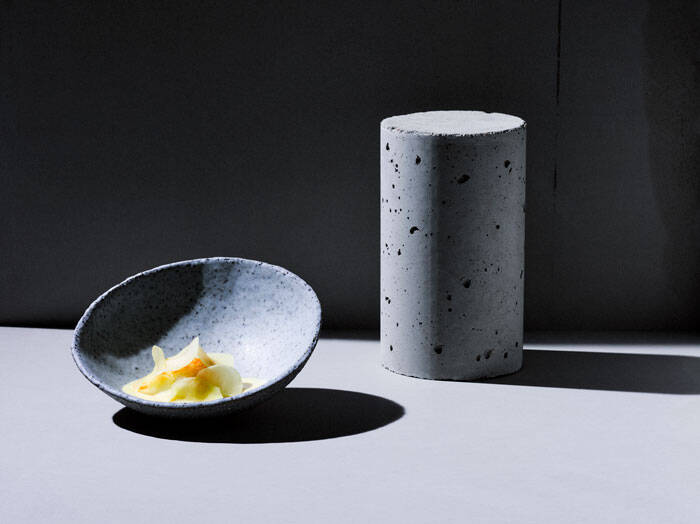What have been the most important lessons you have learned from the Coronavirus crisis?
“This pandemic has shown us that we’re able to change and adapt very quickly. Of course COVID-19 will have consequences for the way people want to have culinary experiences. We have to stay aware, be creative and keep finding new fields of business. I think the importance of self sufficiency has become even more visible. Our challenge will always be to help create change in what we’re eating. We truly believe by changing what you eat, you can change bigger systems and eventually the world.”
How do you see the future and what challenges still lie ahead of you?
“Over the years we've forged strong bonds with our suppliers. It’s important to us that we help to liberate producers from anonymity. Our conscious stimulation of creativity through restriction has tremendous potential. I know there is still a huge array of products we have yet to discover. The close work with our suppliers secures more than just excellent products. It opens up an opportunity for extensive dialog about how foods are grown and produced, allowing us to form a common language.”
©Marko Seifert, Lauch, Sauerampfer
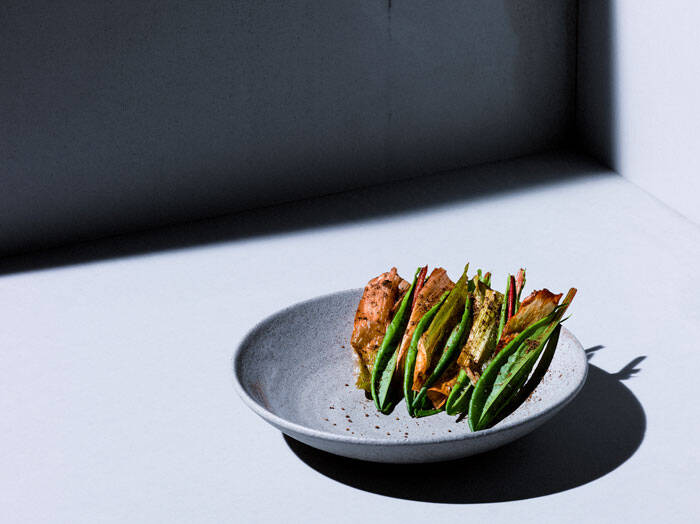
©Marko Seifert, Rharbarber Buttercreme
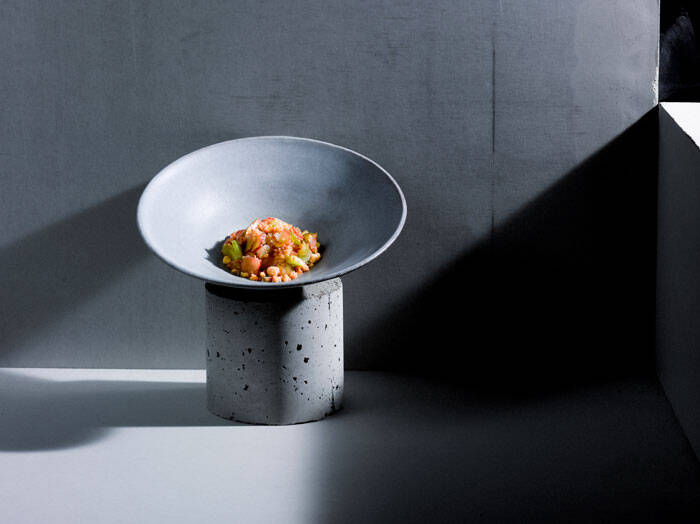
©Caroline Prange, Team Nobelhart & Schmutzig
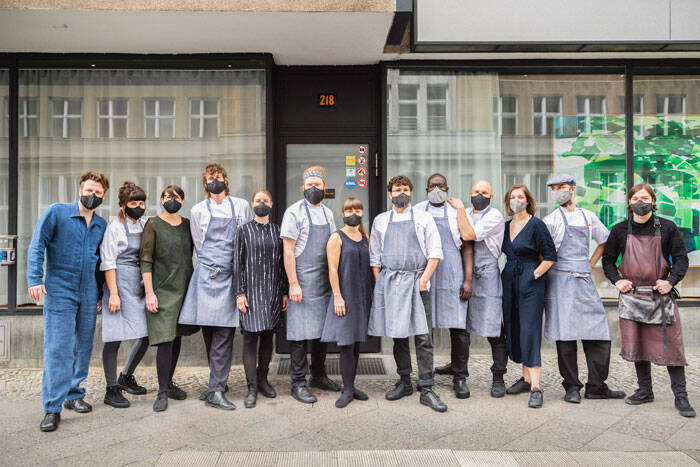
©Klaus Einwanger
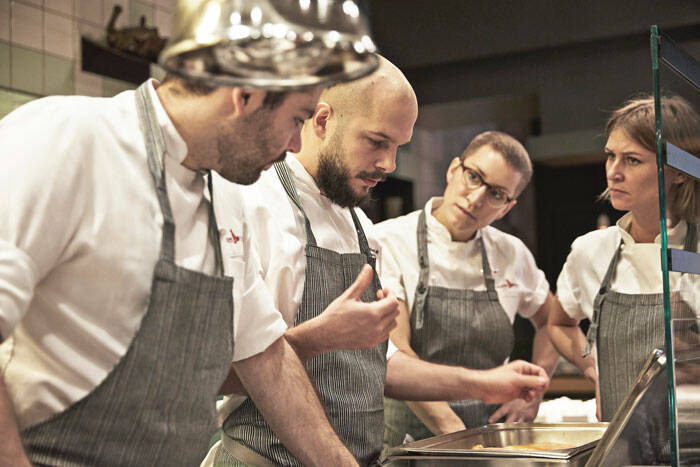
“Food is not just fuel”
What has changed in the ways you work the past couple of months?
“Before the Coronavirus hit Germany we served about 40 guest a night, 200 days a year, in our one restaurant. The past couple of months we’ve expanded our restaurant with different businesses. We now do home delivery, run a shop with very local products and have a new concept: Überall. The restaurant, in which we now serve 27 guests a night, almost feels like a side hustle.”
“Überall is a series of dinners that we created to take people to places where they wouldn’t normally eat, like art studios, flower shops, clubs, churches and factories. We’ll still be practicing our trademark cuisine and use the best ingredients from the area around Berlin, but this time the dishes will be in dialogue with the event’s particular location and its people. After all, food is not just fuel, but one of the most immediate and intimate ways of relating to the world around us. We believe a shared table should be a place of exchange and openness.”
How do you stay creative in stressful times?
“The dishes we serve have a minimalistic approach, but they’re always made with the finest products and craftsmanship. We focus on the essential elements of flavor in each product because that’s what makes a dish exciting. Our kitchen relies almost exclusively on products — particularly vegetables and herbs — from the Berlin region. It’s important to us to work with local products because that way the products we use are delivered at the peak of their quality, fully ripe and optimal in taste. It also gives us a chance to encourage producers to develop top-quality products and charge a sustainable price for them.”
“Using only local products requires a completely different type of thinking and working than in most kitchens. Most products we have to use quickly, because we get them when they’re at their finest. We integrated traditional methods such as brining, pickling, fermenting, curing and marinating into modern culinary techniques. This way we can store and preserve foods we don’t use immediately. Also, the weather has an influence on our menu because it can cause an expected ingredient to be suddenly unavailable. When that happens we have to improvise. The local restrictions we give ourselves ultimately force us to stay curious, innovative and creative.”
“In these times of the Coronavirus pandemic it’s a big comfort that we can rely on our great staff. Because of their hard work, we can have some headspace. For me personally, my wife is great in making me feel self-confident, which helps me stay creative. Also, I think it is important to stay active. Not only within the work we do, but also after work hours. Sports and running keep my energy levels high.”
“
The local restrictions we give ourselves force us to be creative”
©Marko Seifert, Lindenblätter, Senf
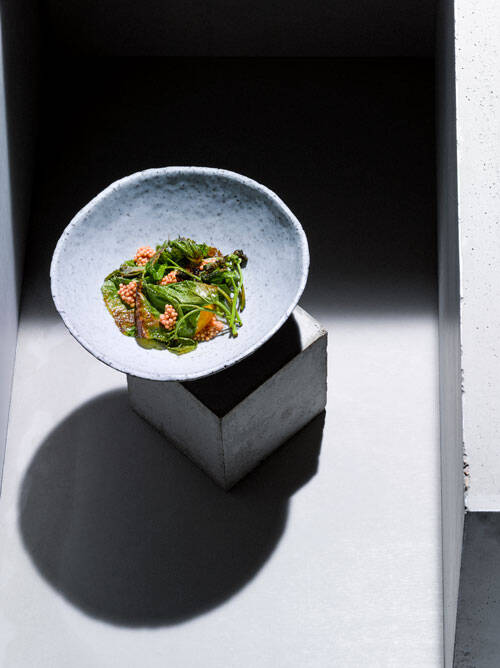
©Yoni Nimrod, Billy Wagner
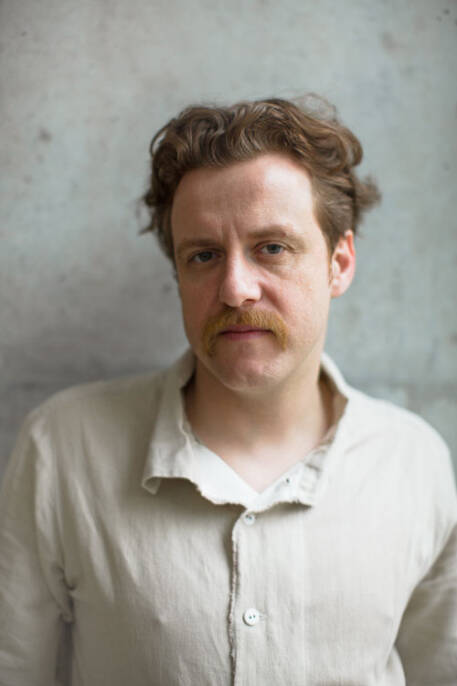
Billy Wagner from the progressive restaurant Nobelhart & Schmutzig, Berlin
Lisa Appels Xiao Er Kong
Located in Berlin, Michelin star restaurant Nobelhart & Schmutzig first opened its doors in February 2015. From the start, Executive Chef Micha Schäfer and host Billy Wagner aimed to open people's eyes to the bountiful nature in and around the city. In their restaurant they use only regional products from small local producers. Five years later, the restaurant has experienced great success, but due to the global Coronavirus pandemic Schäfer and Wagner were forced to think even more outside of the box, Wagner tells Food Inspiration.
Change the system by changing what you eat
INTERVIEW
4 min
RELATING TO THE WORLD THROUGH FOOD
©Marko Seifert, Hecht, Frühlingszwiebeln
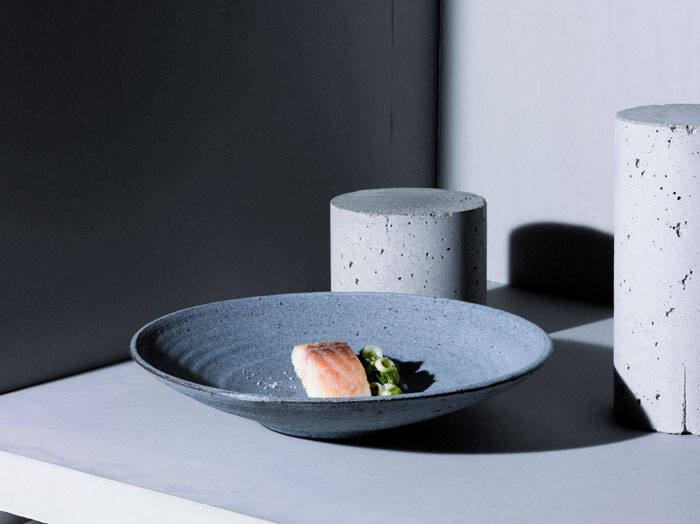
©Marko Seifert, Kartoffel, Senf
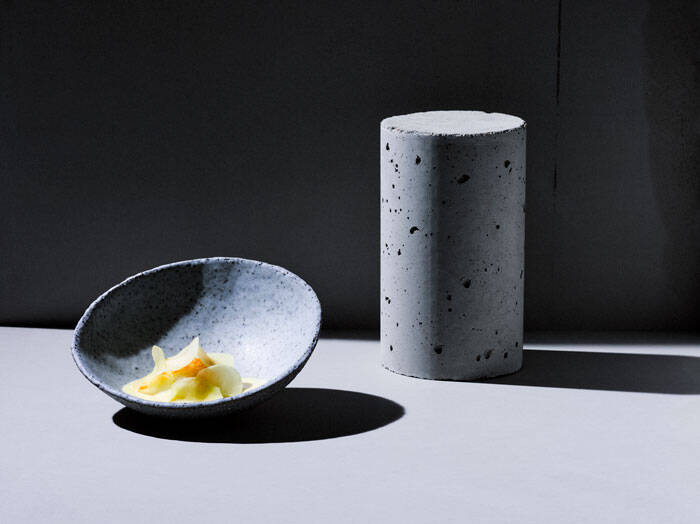
What have been the most important lessons you have learned from the Coronavirus crisis?
“This pandemic has shown us that we’re able to change and adapt very quickly. Of course COVID-19 will have consequences for the way people want to have culinary experiences. We have to stay aware, be creative and keep finding new fields of business. I think the importance of self sufficiency has become even more visible. Our challenge will always be to help create change in what we’re eating. We truly believe by changing what you eat, you can change bigger systems and eventually the world.”
©Marko Seifert, Rharbarber Buttercreme
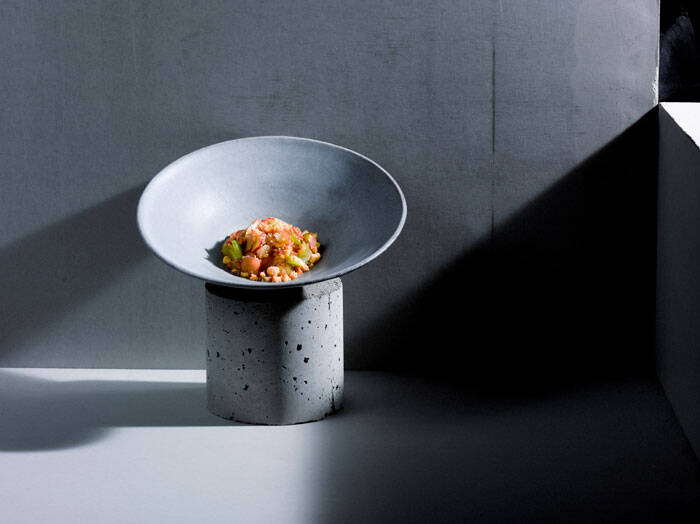
How do you see the future and what challenges still lie ahead of you?
“Over the years we've forged strong bonds with our suppliers. It’s important to us that we help to liberate producers from anonymity. Our conscious stimulation of creativity through restriction has tremendous potential. I know there is still a huge array of products we have yet to discover. The close work with our suppliers secures more than just excellent products. It opens up an opportunity for extensive dialog about how foods are grown and produced, allowing us to form a common language.”
©Caroline Prange, Team Nobelhart & Schmutzig
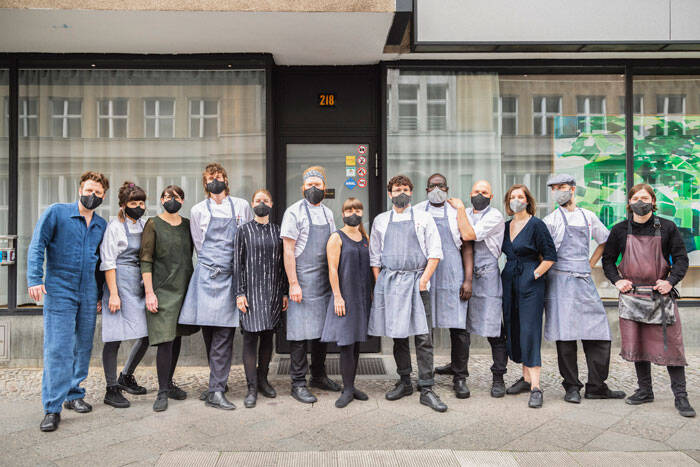
“Food is not just fuel”
What has changed in the ways you work the past couple of months?
“Before the Coronavirus hit Germany we served about 40 guest a night, 200 days a year, in our one restaurant. The past couple of months we’ve expanded our restaurant with different businesses. We now do home delivery, run a shop with very local products and have a new concept: Überall. The restaurant, in which we now serve 27 guests a night, almost feels like a side hustle.”
“Überall is a series of dinners that we created to take people to places where they wouldn’t normally eat, like art studios, flower shops, clubs, churches and factories. We’ll still be practicing our trademark cuisine and use the best ingredients from the area around Berlin, but this time the dishes will be in dialogue with the event’s particular location and its people. After all, food is not just fuel, but one of the most immediate and intimate ways of relating to the world around us. We believe a shared table should be a place of exchange and openness.”
©Klaus Einwanger
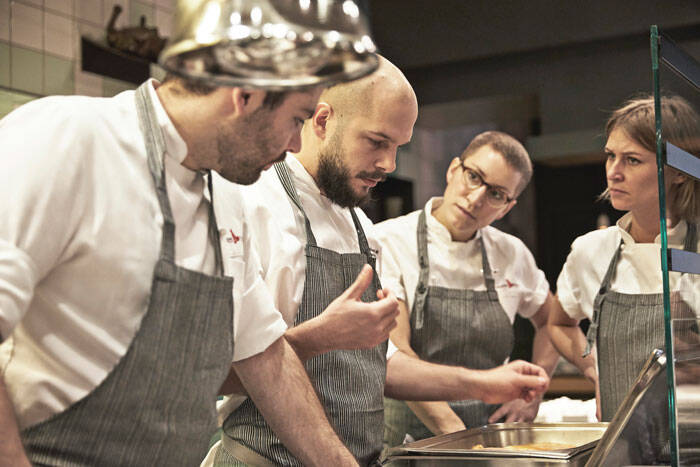
“
The local restrictions we give ourselves force us to be creative”
How do you stay creative in stressful times?
“The dishes we serve have a minimalistic approach, but they’re always made with the finest products and craftsmanship. We focus on the essential elements of flavor in each product because that’s what makes a dish exciting. Our kitchen relies almost exclusively on products — particularly vegetables and herbs — from the Berlin region. It’s important to us to work with local products because that way the products we use are delivered at the peak of their quality, fully ripe and optimal in taste. It also gives us a chance to encourage producers to develop top-quality products and charge a sustainable price for them.”
“Using only local products requires a completely different type of thinking and working than in most kitchens. Most products we have to use quickly, because we get them when they’re at their finest. We integrated traditional methods such as brining, pickling, fermenting, curing and marinating into modern culinary techniques. This way we can store and preserve foods we don’t use immediately. Also, the weather has an influence on our menu because it can cause an expected ingredient to be suddenly unavailable. When that happens we have to improvise. The local restrictions we give ourselves ultimately force us to stay curious, innovative and creative.”
“In these times of the Coronavirus pandemic it’s a big comfort that we can rely on our great staff. Because of their hard work, we can have some headspace. For me personally, my wife is great in making me feel self-confident, which helps me stay creative. Also, I think it is important to stay active. Not only within the work we do, but also after work hours. Sports and running keep my energy levels high.”
©Marko Seifert, Lindenblätter, Senf
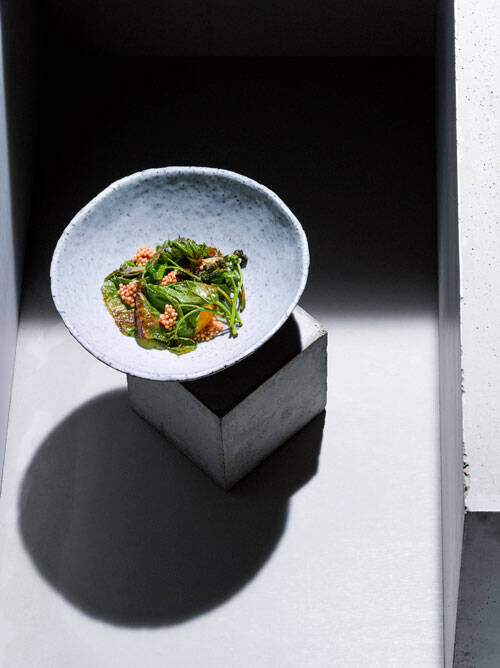
Lisa Appels Xiao Er Kong
Located in Berlin, Michelin star restaurant Nobelhart & Schmutzig first opened its doors in February 2015. From the start, Executive Chef Micha Schäfer and host Billy Wagner aimed to open people's eyes to the bountiful nature in and around the city. In their restaurant they use only regional products from small local producers. Five years later, the restaurant has experienced great success, but due to the global Coronavirus pandemic Schäfer and Wagner were forced to think even more outside of the box, Wagner tells Food Inspiration.
©Yoni Nimrod, Billy Wagner

Billy Wagner from the progressive restaurant Nobelhart & Schmutzig, Berlin
Change the system by changing what you eat
4 min
©Marko Seifert, Kartoffel, Senf
